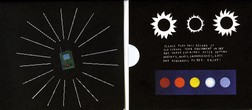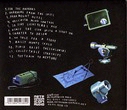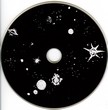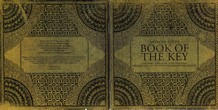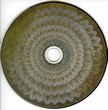|
|
|
It's a label showdown! Welcome to round 38 in the label showdown series between Metronomicon Audio and Jester Records!
Since we've more or less totally missed out on reviewing the output of these two great labels, we are going
through their entire catalogues, matching the releases from each label consecutively against each other.
Humorously counting goals Match preview The Anthony Curtis release comes in a CD jewel case with a booklet with art & info. The match Most of Magnus Moriarty™'s previous releases have been enjoyable, establishing him as the melodic pop-wizard of Metronomicon Audio. On Perhaps Interior Heart Politeness, Marius Ergo helps out on vocals and a lot of the instruments (guitar, bouzouki, bass, mandolin, banjo, organs, synths, melodica, harpsichord, glockenspiel, tambourine, etc.) while Moriarty™ himself plays almost all the same instruments in addition to the drums. Ergo has also written one of the songs, the rest are by Moriarty™. The album starts out with the eerie intro of "For The Anoraks", before jumping right into "Warning From The Skies",
a fine melody using multitracked vocals to great effect. "Paramount Hotel" is more of the same, with a
jingly-happy summer rhythm. But it's Ergo's song "Wichita Mind Control" that is the first nugget,
with its magnificient and bittersweet melancholy chorus To sum it up: There is no doubt that Magnus Moriarty™ knows his way around a good pop song,
but again the songs are too alike, and unfortunately that goes for the arrangements too, like cooking the
same stew over and over with too many of the same ingredients Book of the Key is somewhat of a surprise addition to the Jester catalogue, being an experimental avant/prog-jazz album that would fit right into the MoonJune Records rooster. Anybody into progrock would know the name of bassist Tony Levin, having played with King Crimson and Yes, and many others. Equally renown is Mike Keneally, guitar and keyboard player extraordinaire, who has served time with Frank Zappa and Steve Vai among others. Having these players in your backing band sure sounds promising. Also in the band are violinist Jeff Gauthier, drummer Lewis Pragasam and Ronan Chris Murphy on harmonium, all new names to me. And who is Anthony Curtis? The liner notes give nothing away, besides listing Curtis as a guitarist, it features only paragraphs from the writings of
ancient philosopher Iamblichus and photos of trees. However, given the assembly of musicians, it comes as no surprise to
learn that Curtis is pushing the borders of his instrument. The 12 minutes long opening "Ruin" seems most of all
like a warm-up piece, with guitar excursions over a rather straight repeating bass theme, and steady 4/4 rhythms. "Gallabalba" is both friskier
and Frippier, and happily too short for its square disharmonies to cause ear tension. "Inland Sea"
also moves around rather simple bass themes, creating a base for Curtis to improvise to. Loosely arranged, it shows
his ability to let his playing flow in directions perhaps not planned for. The title track is the longest track here,
23 minutes, of which the first 10 are based around a loopy, intense and funky bass theme, with Curtis fuzzy
improvising around it and astray, all rather exhausting To sum it up: The formula of short, simple, monotonous and repetetive bass motives that most songs are built around,
proves to be a fine vehicle for Curtis' guitar playing, but also quickly grows boring to listen to Match result: Metronomicon Audio 2 (
Next match Copyright © 2012 Knut Tore Breivik
|
| © 2012 FuzzLogic |
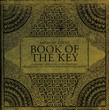
 Magnus Moriarty™: Perhaps Interior Heart Politeness
Magnus Moriarty™: Perhaps Interior Heart Politeness